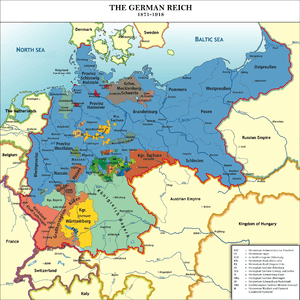East Elbia

East Elbia (German: Ostelbien) was an informal denotation for those parts of the German Reich until World War II that lay east of the river Elbe.
The region comprised the Prussian provinces of Brandenburg, the eastern parts of Saxony (Jerichower Land) and the Kingdom of Saxony (Upper Lusatia), Pomerania, Silesia, East Prussia, West Prussia and Posen (from 1922 Posen-West Prussia) as well as the states of Free State of Mecklenburg-Schwerin and Free State of Mecklenburg-Strelitz. The urban area of Berlin was not included.
East Elbia was noted for its historic manorialism and serfdom and for political conservatism, combined with the predominantly Protestant confession of the local population. "East Albian Junker" was a politically charged term used by the Left especially during the Weimar Republic (1918-1933), denoting especially rich functionaries of the conservative, right-wing German National People's Party (DNVP) that fitted the stereotype. Already during the time of the German Empire (1871-1918), these East Albian Junkers had formed the monarchy's reactionary backbone.
See also
References
McNeill Eddie, Scott (2008) Landownership in Eastern Germany before the Great War : a quantitative analysis. Oxford Univ. Press. ISBN 0198201664